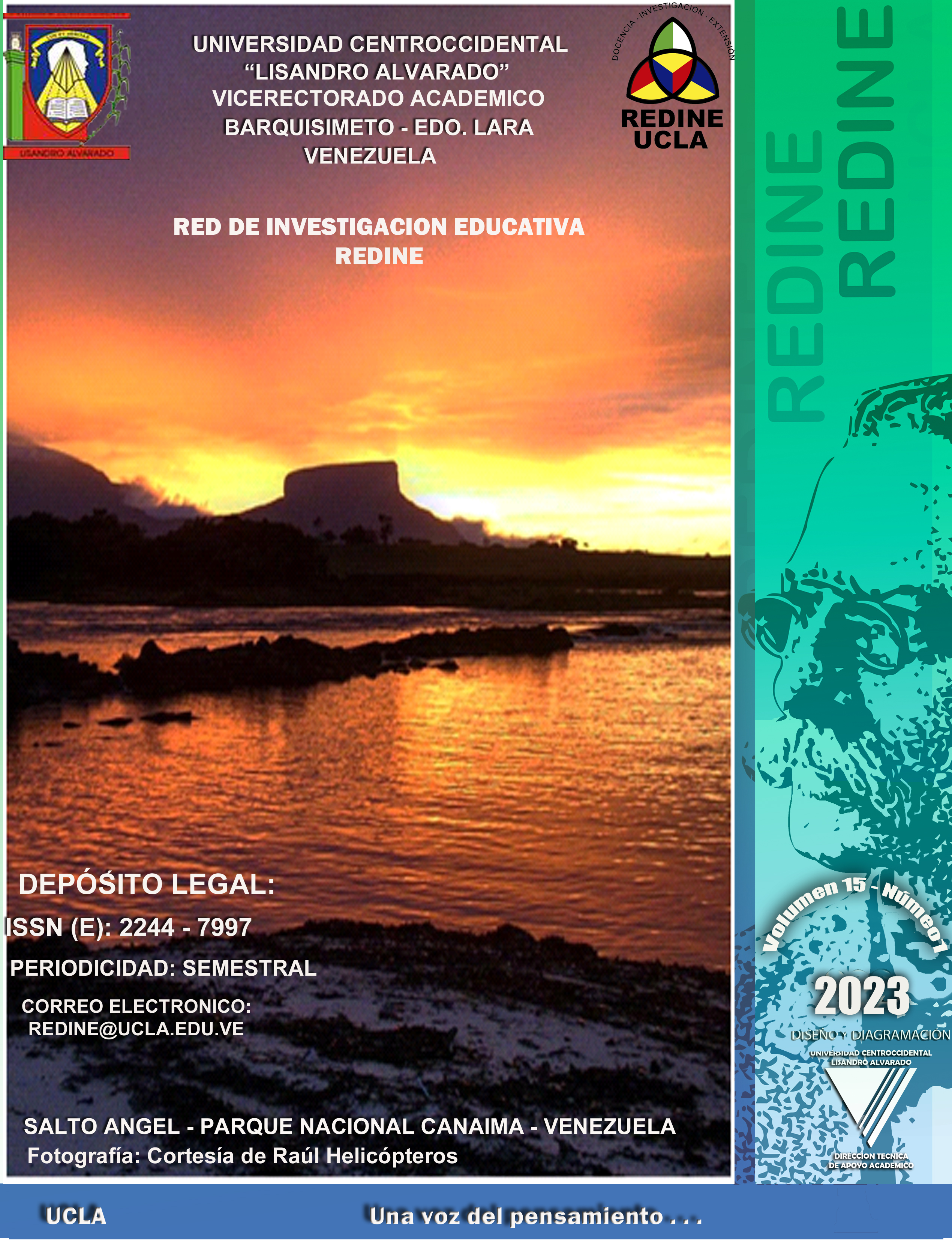Contributions to the understanding of entrepreneurship from Autoetnography
DOI:
https://doi.org/10.5281/zenodo.7489407Keywords:
Entrepreneurship, autoethnography, qualitative researchAbstract
Entrepreneurship is a dynamic activity of society by providing economic and social benefits. Its study has multiple edges as well as theoretical and methodological orientations. For this reason, this study is presented, which seeks to generate contributions for the understanding of entrepreneurship from autoethnography. The latter, a qualitative method that allows providing a research product where the spatial and temporal context in which the study informants have lived their experience as entrepreneurs is understood, covering the cultural, social, economic and political dimensions. All this, to describe and understand their experiences from a conception of an interpretive nature. For data collection, an in-depth interview and participant observation were used. For the generation of categories, content analysis, reduction and integration of codes were used until the final categories were obtained. All this, a process that makes science and art concur in the same investigation. The latter, as a creative process together with the narrative with overtones of literary expression. The latter, as a creative process together with the narrative with overtones of literary expression. The final categories emerged from the testimonials and my interpretation: The entrepreneur and its essence, Entrepreneurship and its truth, and finally, Entrepreneurship and its consequences. With these categories I look for an organized whole that contributes to the understanding of the object of study.
Downloads
References
Alcaraz, R. (2011). Emprendedor de Éxito. Cuarta edición. Editorial McGraw- Hill. México. https://www.stodomingo.ute.edu.ec/content/pdf
Aragón F. & Severi M. (2002). Características personales de los emprendedores. Diferencias con los ejecutivos de corporaciones. Tesis de maestría no publicada, Universidad del Cema, Argentina. 1-49.
Cáceres, J. (2019). En busca de mi identidad como maestra: una visión desde la autoetnografía. Universidad de Valladolid. Facultad De Educación De Segovia grado En Educación Infantil. https://hdl.handle.net/11162/198497
Castillo, A. (1999). Estado del Arte en la Enseñanza del Emprendimiento. First Public Inc Chile S.A. En: http://recursos.ccb.org.co/
bogotaemprende/portalninos/
contenido/doc2estadodelarteen
laensenanzadelemprendimiento.pdf
Conde, R. & Salem M. (2003). Reconsideraciones de dos actores claves del desarrollo económico. La pequeña empresa y el emprendedor. Administración y organizaciones https://rayo.xoc.uam.mx/
index.php/Rayo/article/view/297
Crespo, P., Rham, P., Gonzáles, G., Iturralde, P., Jaramillo B., & Mancero L., Moncada, M., Pérez Artemio, & Soria, C. (2007). Empoderamiento: conceptos y orientaciones. Serie Reflexiones y Aprendizajes ASOCAM. https://www.shareweb.ch/site/
Poverty-Wellbeing/resources/
Archive%20files/Empoderamiento%
-%20Conceptos%20y%
Orientaciones%202007.pdf
Ellis, C; Adams, & T; Bochner, A. (2015). Autoetnografía: un Panorama. Revista Astrolabio. (2) 2015. https://revistas.unc.edu.ar/
index.php/astrolabio/article/
download/11626/12041/0
Emprendedores, (2021). Estos son todos los problemas a los que se enfrenta un emprendedor https://www.emprendedores.es/gestion/
principales-problemas-emprender/
#:~:text=Problemas%
en%20la%20gesti%
C3%B3n%3A%20Incapacidad,toma%
de%20decisiones%20y%20la
Folgueiras, P. (2009). Métodos y técnicas de recogida y análisis de información cualitativa. Buenos Aires. https://silo.tips/download/metodos-y-tecnicas-
de-recogida-y-analisis-de-informacion-cualitativa
Formichella, M. (2004). El concepto de emprendimiento y su relación con el empleo, la educación y el desarrollo local. Conference: VII Congreso Nacional e internacional de Administración, y XI CONAMERCO (Congreso de Administración del MERCOSUR).
publication/281465619_El_concepto
_de_emprendimiento_
y_su_relacion_con_el_
empleo_la_educacion_y_el_desarrollo_local
Hidalgo, F. (2014). La Cultura del Emprendimiento y su Formación. Rev. Alternativas UCSG. 2014; 15(1). https://docplayer.es/21771578-La-
cultura-del-emprendimiento-y-su-formacion.html
Lado, A. (2001). Universidad del Cema, Maestría en Dirección de Empresas Tesis: “Desarrollo de una Visión Estratégica” Autores: Adriana Lado Pose Estela Razzano Lorena Nerina Faccini Florencia Tiscornia.
https://ucema.edu.ar/posgrado-
download/tesinas2001/Faccini-MADE.pdf
Leite, E., Correia, Eb, Sánchez-Fernández, Md, Leite, E. (2015). El Espíritu Emprendedor: Condicionantes para la Innovación. Holos, 5 ,278-291.
https://www.redalyc.org/articulo.oa?id=481547288024
Núñez Ladeveze, Núñez, M. (2016): “Noción de emprendimiento para una formación escolar en competencia emprendedora”. Revista Latina de Comunicación Social, 71, pp. 1.069 a 1.089
http://www.revistalatinacs.org/
/paper/1135/55es.html
DOI: 10.4185/RLCS-2016-1135
Querejazu, C. (2020). Aproximación teórica a las causas del emprendimiento. Economía Teoría y Práctica. Nueva Época, año 28, número 52, enero-junio 2020.
etp/n52/2448-7481-etp-52-69.pdf
Rico, L; Palmero, C; Escolar L; Camino, M. (2015). Impacto de la educación en el emprendimiento. Making-of y análisis de tres grupos de discusión Pedagogía Social. Revista Interuniversitaria, núm. 25, 2015, pp. 221-250 Sociedad Iberoamericana de Pedagogía Social Sevilla, España
/135043709013.pdf
Rojas, N. (2020). ¿Qué es el emprendimiento? Fundación Axel. https://www.funax.org/fs/blog/
emprendimiento/129-que-es-el-emprendimiento
Ruiz, et, al. (2009). ¿Cómo identifican las oportunidades de negocio los emprendedores? Una aproximación descriptiva al caso andaluz. Universidad de Granada.
https://www.researchgate.net/publication/
_Como_identifican_
las_oportunidades_
de_negocio_los_emprendedores
_Una_aproximacion_descriptiva_al_caso_andaluz
Sandín, M. (2003). Investigación Cualitativa en Educación. Fundamentos y Tradiciones. Editorial McGraw-Hill. México.
Silva, C. & Loreto, M. (2004). Empoderamiento: Proceso, Nivel y Contexto. Psykhe, 13 (2),29-39 https://www.redalyc.org/articulo.oa?id=96713203
Teran-Yepez, F. & Guerrero-Mora, A. (2019). ¿Emprendimiento Por Oportunidad O Por Necesidad? Estudio Comparativo Entre Países. Revista Científica Multidisciplinaria Mikarimin. Vol. 5, Núm. 2 (2019).
http://45.238.216.13/ojs/index.php/
mikarimin/article/view/1275/1174
Published
How to Cite
Issue
Section

This work is licensed under a Creative Commons Attribution-NonCommercial-ShareAlike 4.0 International License.
Derechos del/de autor/es a partir del año de publicación
Esta obra está bajo la licencia:
Creative Commons Reconocimiento-NoComercial-CompartirIgual 4.0 Internacional (CC BY-NC-SA 4.0)
Las opiniones expresadas por los autores no necesariamente reflejan la postura del editor de la publicación ni de la UCLA. Se autoriza la reproducción total o parcial de los textos aquí publicados, siempre y cuando se cite la fuente completa y la dirección electrónica de esta revista. Los autores(as) tienen el derecho de utilizar sus artículos para cualquier propósito siempre y cuando se realice sin fines de lucro. Los autores(as) pueden publicar en internet o cualquier otro medio la versión final aprobada de su trabajo, luego que esta ha sido publicada en esta revista.




